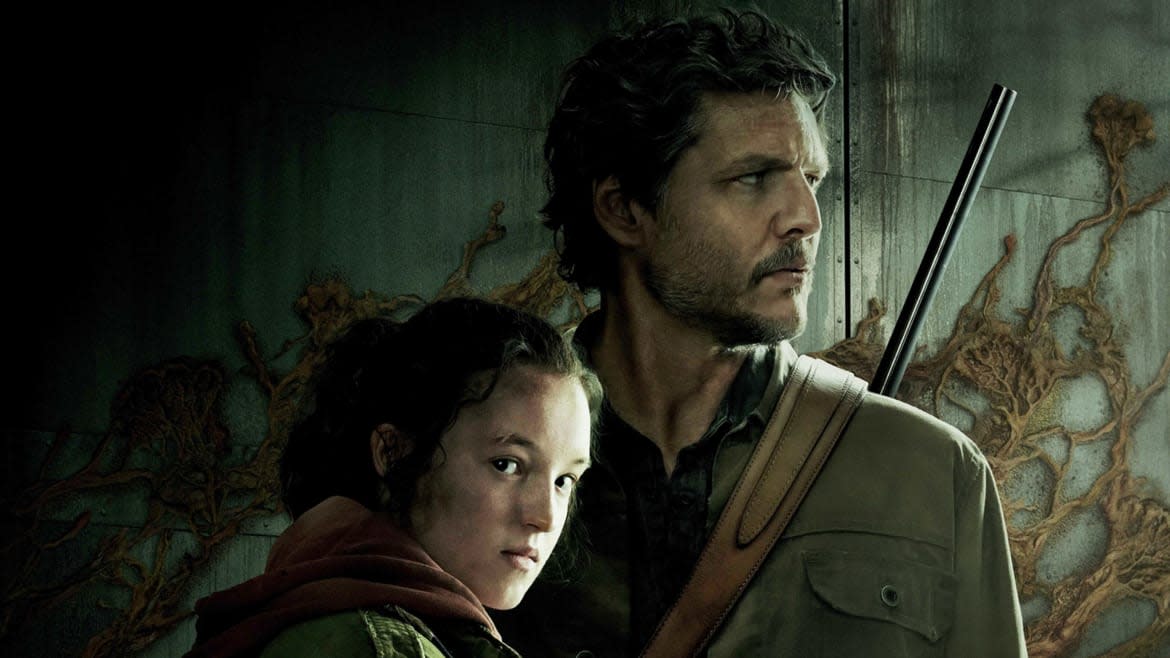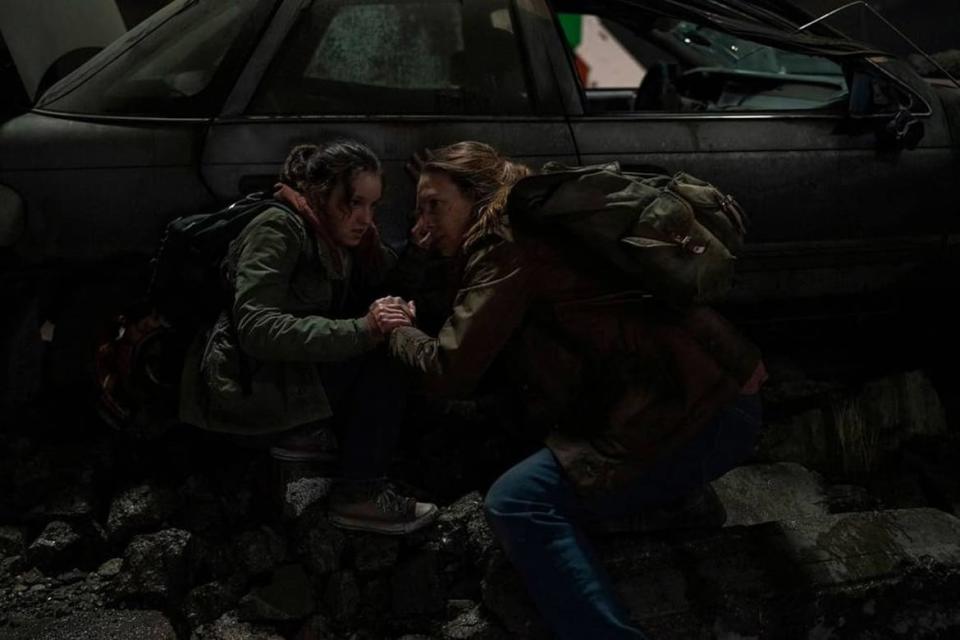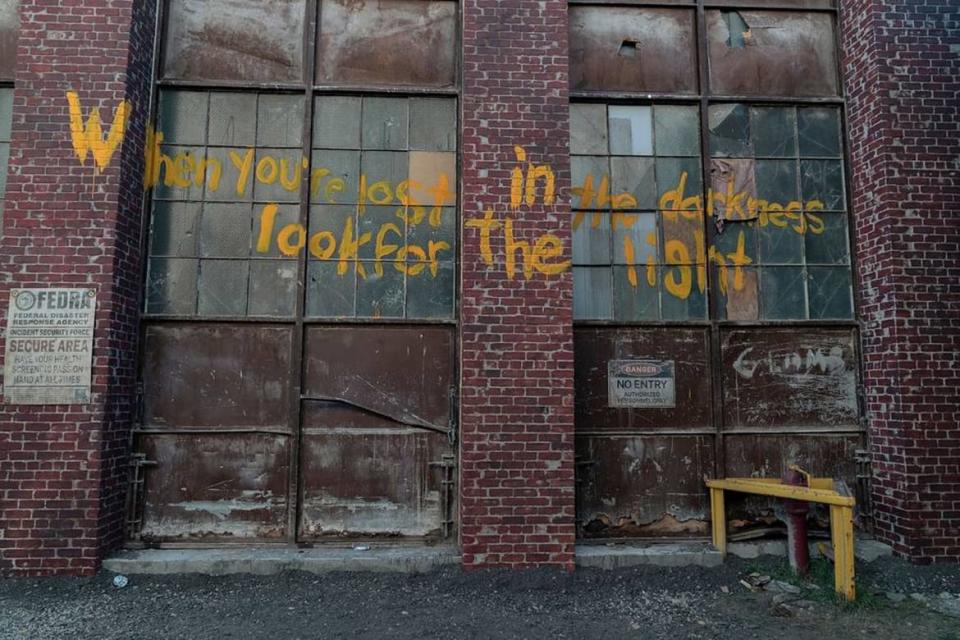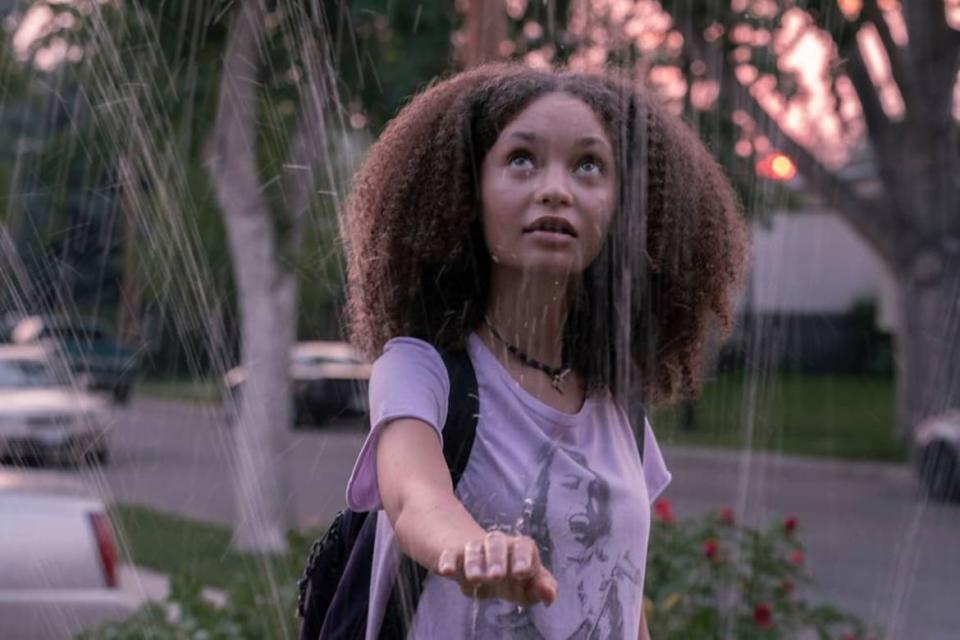Secrets of ‘The Last of Us’ Premiere: Creators Craig Mazin and Neil Druckmann Tell All

- Oops!Something went wrong.Please try again later.
- Oops!Something went wrong.Please try again later.
- Oops!Something went wrong.Please try again later.
- Oops!Something went wrong.Please try again later.
A post-apocalyptic saga of survival, sacrifice and the inspiring and terrifying lengths people will go to hold onto love, The Last of Us isn’t just must-see TV—it’s the best video game adaptation ever.
On the surface, Craig Mazin and Neil Druckmann’s nine-episode HBO series treads familiar terrain, recounting the efforts of loner Joel (Pedro Pascal) to transport mysterious teenager Ellie (Bella Ramsey) across an American wasteland rife with slavers, raiders, and monstrous humans mutated by a catastrophic fungal infection.
Yet the duo’s adaptation of Druckmann’s acclaimed 2013 PlayStation hit is anything but a retread, offering up a uniquely horrifying vision of societal collapse, and painting an intimate and moving portrait of loss, loneliness, hope, togetherness, and the thorny consequences of grief.
The Last of Us is a moral drama about two strangers brought together by circumstance and bonded by need, and the way in which their growing relationship complicates not only their mission—namely, to deliver Ellie to a facility where she might play a role in thwarting the doomsday pandemic—but also, by extension, the fate of the world.
Mazin and Druckmann’s show is a somber and scary affair, and fans of the game will find that it’s strikingly faithful to its source material in terms of style, theme, and action, from harrowing stealth sequences and raging sniper-rifle firefights to one-against-many rampages and sudden tragedies (not to mention a litany of easter eggs).
Featuring superb turns from Pascal, Ramsey and a collection of great supporting players including Anna Torv, Nick Offerman, Murray Bartlett, Gabriel Luna, Melanie Lynskey and Storm Reid, it’s a superior genre affair that’s even richer than its interactive predecessor. On the eve of its premiere, we spoke with Mazin and Druckmann about differentiating The Last of Us from its post-apocalyptic brethren, their deviations from the game, and their long-term plans for the series.

You’ve said you have no intention of extending The Last of Us past the games. Since there are only two titles in the franchise, does that mean the HBO series will only last two seasons—or, if you stretch things, three?
Mazin: People first have to watch it, so hopefully they do. But we all want to keep going, obviously; we’re just waiting for the audience to give us permission, essentially, to keep going. This is all I want to do—I’m happy to do this forever. But Neil and I are pretty committed to the idea that stories have ends. If you don’t know how it ends, I don’t know what the point is.
There are shows that go on and on that I love, but for me as a writer, I don’t know how to do it. I only know how to write towards an ending. The good news is, if people do like the show, the story that now remains as source material [i.e., The Last of Us Part II] is much larger and more complicated than the story in the first game. I don’t know how to do that story in one season; I don’t think it’s possible. It would be more than one season. But it would not go on and on. There is a built-in terminus, and that is what we would aim to get to.
HBO’s Masterful ‘The Last of Us’ Is the Best Video Game Adaptation Ever
Neil, has working on the show made you consider producing a third game?
Mazin: Nick is cold! Nick is like, I want to break some news!
Druckmann: [laughs] I won’t answer your question directly. But I’ll just talk about the process, and I think Craig has a very similar process. When I made the first game, I always needed an ending. It’s hard to construct something or give direction toward a particular thing if you don’t know what that thing is. So the ending for the first game was one of the earliest things that was figured out, and everything was working towards that.
Then we were debating, do we ever make a second game? Because again, that story was great. For a while, there were other ideas that I had that just didn’t work out; thematically, they just weren’t as interesting and universal as what was explored in the first game. Then I landed on something that I got really excited by, and the team at Naughty Dog got really excited by. But we were like, we’re going to treat this in the same way, meaning there might never be more story past this point. This also has to be a definitive ending. That’s how we approached the second game.
If we were to ever tell more story, it would have to be the same process—which is, it would have to be something worthwhile that enriches everything that came before it. If we can’t come up with it, the story ends there.
The game was influenced by certain genre predecessors, and in the decade since its release, the game has influenced many subsequent genre works. In that context, how do you make sure a TV adaptation of The Last of Us feels fresh and distinctive?
Mazin: It’s a good question. I’ll give you my answer, which is pretty simple: You go back to the OG story and you recognize that there was a reason people were taking from it and being influenced by it, and you go to that and give yourself freedom to explore and expand and surprise. Just like there are shows about war and they’re all different, or shows about going to space and they’re all different, this one has something that the others ones don’t have, even if they’ve copied it or derived things from the way and Joel and Ellie’s relationship is, and that’s: They’re not Joel and Ellie. We’ve got Joel and Ellie.
So, I’m not actually afraid of that. In a weird way, I think it’s almost better to say, oh, you’ve tried all these other interesting foods that were versions of this original dish. Now, here’s the original dish, and it’s going to be better.

The series is very faithful to the game, but there are deviations and expansions, be it the third episode or a later storyline involving Melanie Lynskey’s new character. How did those changes come about?
Druckmann: I think we both knew from the beginning that there were aspects of the game that would not translate well to this medium. That there are these long action sequences that get you to connect with the character through interactivity that, if we just translated them as-is to TV, they would become maybe interesting action sequences but boring character studies. To what Craig was saying earlier, the heart—and what I think makes The Last of Us special—is the relationship between Joel and Ellie and everything that permeates out of that relationship, and what it says about love, in both beautiful and horrific ways.
The process became, how do we expand on things? What are some perspectives that we didn’t get to see in the game that we could explore in the show? What are moments with Joel and Ellie—again, because that’s the heart of the show—where we could see more of them? Something that comes to my mind is, there was concept art that we had for the game where you see Joel and Ellie sitting by a campfire laughing.
Why ‘The Last of Us’ Is the Video Game That Changed My Life
To me, that was one of those pieces of art that I kept coming back to because it captured an essence of their relationship that we were always striving for when we were making the game. But we could never make that moment in the game. Another one is concept art of Joel training Ellie to use a rifle—that was one of my favorites, and we could never get to that part in the game, it was just one of those things that we couldn’t work into the structure of the game. But with a show, we absolutely could.
Then, obviously, Craig had his own ideas, and things he’d thought about and corners of the world that I hadn’t. From my perspective, part of the joy was when he’d come up with a new idea and say, what if we did this? Or, I’ve been thinking about Sam and what if we change him in this particular way? Often, my reaction would be, you son of a bitch, I wish I had thought of that for the game! [laughs] But it just helped enrich the world and the characters, and do a deeper dive into them, which is one of my favorite parts when working on something like this.
Mazin: I’ll give Neil a quick compliment. As an author of source material, I don’t think there’s anybody who’s as flexible and generous and smart about it. There was never any sense of protectionism, or defensiveness, or “why would we change this, why do we have to change things?” I worked on an adaptation for a feature film right before The Last of Us, and I spoke with the creator of the source material, and his first question was, why all the changes? Because it’s an adaptation! That was never Neil’s instinct. Neil’s instinct was always, we can change anything we want to. Do we want to? Why do we want to? What do we get from it? What do we lose?
Druckmann: Those would be the conversations. What is the ripple effect? Let’s talk about pros and cons. And then to do the math of, okay, is it better to stick with what was there or change? Since you just brought it up, the third episode deviates greatly from the game. But to me, what we get in return is so beautiful and helps the themes of the story of the show so well that it was a worthwhile deviation that Craig pitched.

There’s been talk about a The Last of Us adaptation for years. How did this one, with HBO and Craig, finally work out? Was its fidelity to the game the reason it came to fruition?
Druckmann: I’ll start with the second part of your question, because I recently had a conversation with Talha Asad, one of the executives at HBO who’s a gamer and was a big fan of the game. He told me that all these studios are now reaching out to HBO saying, we have your next game adaptation! And he’s like, we don’t care if it’s a game or not; we just want to tell good stories. The fact that it’s a game, or that the show was faithful to the game, was the least important part for them. They just want it to be a really great HBO show.
As far as how I met Craig, we had a mutual friend: Shannon Woodward, who played Dina in the second game. I was a big fan of Chernobyl, it turned out he was a big fan of the game, and so she put us on a date together where we went and grabbed lunch. I just wanted to compliment him on Chernobyl because I loved it so much and I was curious about the process, and how it came about, and what it was like to work with HBO. Then I became more and more intrigued with, what if I teamed up with this dude and HBO to make this adaptation? Because by that point, I had worked on trying to make a film version of it for so many years, and I had already given up on it.
It just became a no-brainer to do it. I still had trepidation, and I was still worried, because this thing means so much to me. But in a very short period of time, I got to trust Craig and his instincts. The love he had for the material rivaled my own, so it became very easy at times to walk away and trust that he would shepherd it to a good place.
Given that the ending is so crucial to the game, and considering the complicated things the story has to say at its conclusion, was it easier and/or more natural to do an adaptation for HBO, versus in a film?
Druckmann: I’ll give a quick answer where, hopefully, I’m not talking too much crap—but I will. When I first started working on the film version, one of the first things one of the top executives on it said to me was, we’re going to have to focus-test this ending, because I don’t know if this ending would work well for a film audience. Working with HBO and Craig, HBO said, yes, obviously this is the ending, there’s no question this is where you need to head for the story. That was never a point of contention.
M. Night Shyamalan’s ‘Servant’ Is Still Creepy TV Excellence
Mazin: HBO, as it turns out, is an excellent place to make an HBO show [laughs]. Really. They are one of the only brand names that matters. The name Disney matters to people, it means something, and I think an HBO original means something to people: it means quality, it means prestige television. Their big secret is that they’re a) very smart; b) know their audience extraordinarily well; and c) trust the artists. They put so much faith in the artists, and they’re really smart to basically say, the show we want you to make is the show you are obsessed with making. Because when we, as creators and writers and artists and directors, are obsessed, we’ll work ourselves to death to make it great.
They are amazing about giving us so much space—and I also want to tip my hat to them for giving us so many resources. That’s code for money, to do a very expensive television show. Casey Bloys, who runs HBO, and Francesca Orsi, who runs the drama department, are not gamers. They were vaguely aware of something called The Last of Us, but what they were incredibly aware of was me and Neil and the passion we had when we talked to them about it. That was enough for them.
Druckmann: To me, it felt very similar to my experience working with PlayStation. They gave Naughty Dog incredible resources and complete creative control when we first made The Last of Us, and even when we made The Last of Us Part II and made some pretty risky narrative choices in there. At no point did I have any executive or anyone question that. I got support every step of the way.
The 22 Best TV Shows of 2022: From ‘Better Call Saul’ to Bravo
You stay very true to the first game in The Last of Us, but was there anything you were disappointed you didn’t get into the show—and might want to include in a future season (or game)?
Druckmann: One thing that comes to mind—again, this is one of those moments where I told Craig, you son of a bitch, I wish I had that earlier!—was the idea of the network of the tendrils, and how they could communicate between different hordes of infected, and how they’d be connected. Because first, it’s creepy as hell. But also, it would make for a really cool gameplay mechanic, of how you’d navigate a space without touching those tendrils. Anyway, that’s a small example.
Mazin: Now you have to make The Last of Us Part III, because I want to play that!
Get the Daily Beast's biggest scoops and scandals delivered right to your inbox. Sign up now.
Stay informed and gain unlimited access to the Daily Beast's unmatched reporting. Subscribe now.

